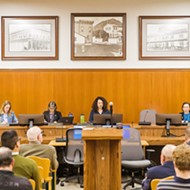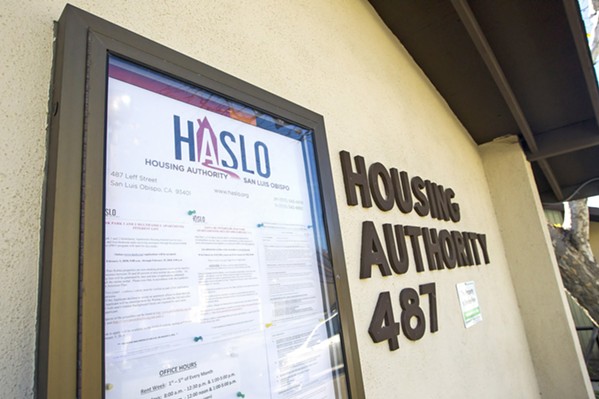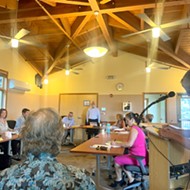SLO drops impact fee waivers for affordable housing projects in favor of deferrals
By Bulbul Rajagopal[
{
"name": "Newsletter Promo",
"id": "NewsletterPromo",
"class": "inlineCenter",
"insertPoint": "4",
"component": "15264767",
"requiredCountToDisplay": "0"
},
{
"name": "Ad - Medium Rectangle CC01 - 300x250 - Inline Content",
"class": "inlineCenter",
"insertPoint": "8",
"component": "15582119",
"requiredCountToDisplay": "12"
},{
"name": "Ad - Medium Rectangle LC01 - 300x250 - Inline Content",
"class": "inlineCenter",
"insertPoint": "18",
"component": "15582122",
"requiredCountToDisplay": "22"
},{
"name": "Ad - Medium Rectangle 9 - 300x250 - Inline Content",
"class": "inlineCenter",
"insertPoint": "28",
"component": "15582121",
"requiredCountToDisplay": "32"
}]
The city of San Luis Obispo removed the option of waiving impact fees for developers engaged in creating affordable housing, replacing it with a deferral scheme and updating a 17-year-old resolution.
"The city's existing practice of granting impact fee deferrals helps to accelerate the production of below-market rate—that's low income and below—units, especially those constructed by affordable housing developers using tax credits," city Housing Coordinator David Amini said at the Sept. 17 SLO City Council meeting.
The City Council unanimously voted to adopt a draft resolution that supersedes one that's been around since 2007 that not only allowed development impact fee waivers for voluntary affordable housing projects taken on by private developers but also applied it to accessory dwelling units. The new resolution brings the city in line with California Government Code that directly regulates impact fees applicable to accessory dwelling units, prompting the removal of that provision in the update.
Now, the impact fee deferral system is a loan on the property for 20 years with an annual simple fixed interest rate of 3 percent, which must be paid in full at the end of the term.
Previously, impact fee deferral loans approved by the city had to be paid off within 30 to 55 years with interest rates between 3 and 4 percent. Over the past decade, impact fee deferrals helped build 300 units of housing across eight projects. It totaled in roughly $5 million in deferred fees, which in turn aided in leveraging more than $60 million in tax credit equity.
SLO categorizes eligible impact fees as fire, parkland in-lieu, parks and recreation development, and transportation impact fees. The deferral doesn't apply to special district and water and wastewater impact fees.
"Wastewater and water development impact fees have historically not been deferred, as the revenue from these fees offsets the need to increase rates for existing users," the staff report read.
Housing projects eligible for deferred fees provide units in excess of SLO's inclusionary housing requirements, which would be rented to low, very low, extremely low, or acutely low-income households. Housing projects restricted for lower-income residents that are built, owned, and managed by a government agency or a nonprofit housing organization also qualify for deferred impact fees.
Housing Authority of SLO Executive Director Scott Collins told council members that the new deferral format will be incorporated into the group's future affordable housing developments.
"This is an incredibly important component of our overall funding package to be competitive on the market for tax credits," Collins said during the public comment period. "That's how we build projects, all of them, effectively. We understand the need to balance the loan provisions against the need for financial support for what you're trying to do as a community." Δ
Latest in News
Readers also liked…
-

When the levee breaks: Oceano residents, county officials walk a tightrope of regulations to manage Arroyo Grande Creek, which some say led to the levee's failure in January
May 18, 2023 -

Cal Poly report highlights offshore wind's potential to spur green energy transition
Jun 8, 2023 -

Cal Poly students demand rent control, accountability for substandard housing from SLO City Council
Jun 22, 2023








